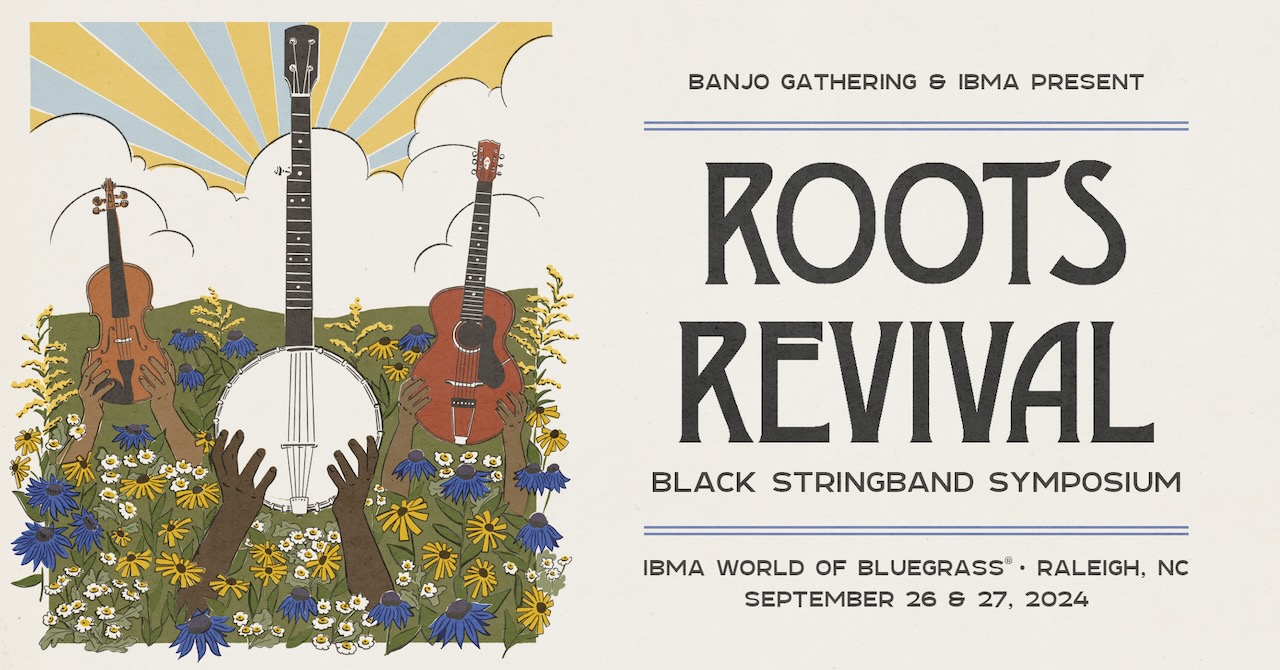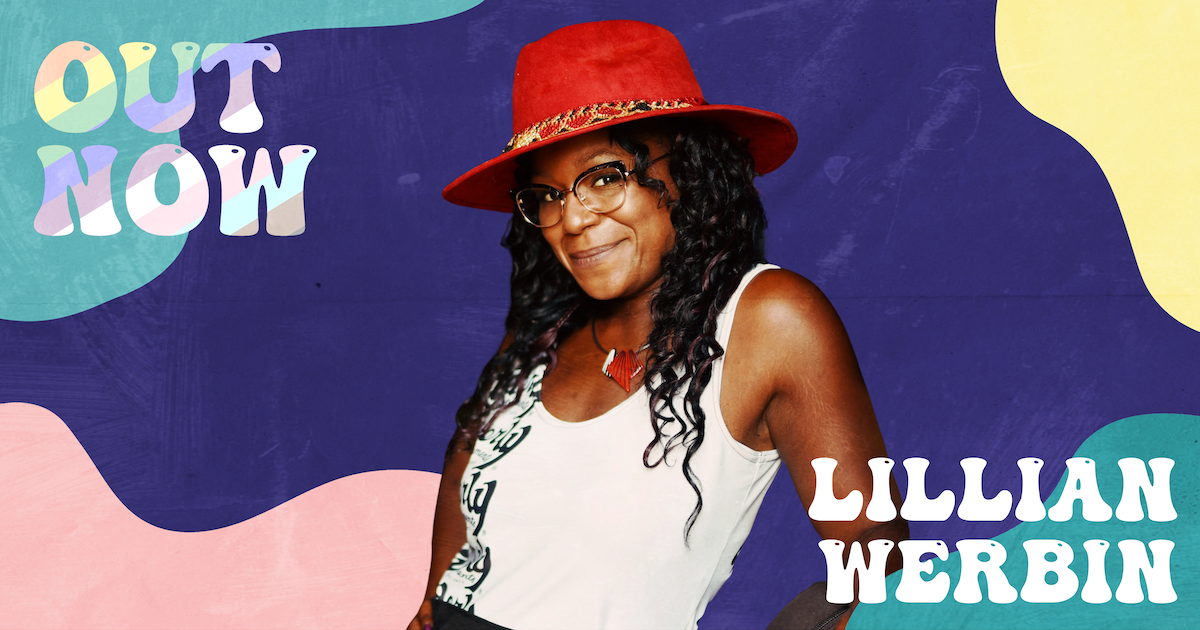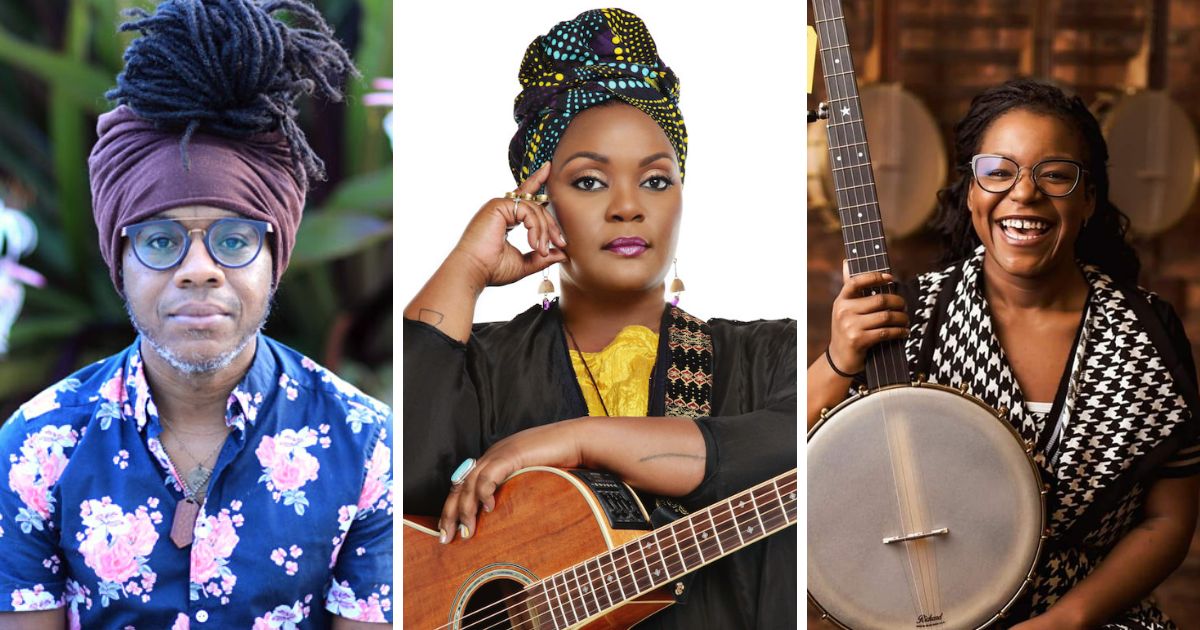This year, a new event will debut at the IBMA World of Bluegrass in Raleigh, North Carolina. Presented by IBMA and The Banjo Gathering, Roots Revival: Black Stringband Symposium will explore Black contributions to bluegrass and traditional music over two days of the week-long event with six especially programmed sessions.
On Thursday, September 26, conference-goers, virtual participants, and symposium attendees will engage with sessions like “Navigating Narratives: Being a Black Woman in Folk Music” and “Alive in the Archives.” On Friday, September 27 programming will include “Making Instruments” and “Journey of a Song,” featuring musicians Hubby Jenkins, Amy Alvey, and Mike Compton, as well as two special showcases: “Black Music in Appalachia” and “Beyond Bluegrass.” (See a full schedule with panel descriptions below.) Virtual passes for the symposium are available here, in person passes can be purchased here.
“First of all, I’m extremely excited to be part of this event,” said artist, scholar, and educator Brandi Waller-Pace, who will be participating in the symposium programming. “I’m happy to see something happening at IBMA that provides a platform for black people from a multitude of backgrounds and experiences to talk about all of these key things within these musical forms that we have been excluded and erased from. I really hope that this is the beginning of more widespread recognition and acknowledgment for our contributions in this field and for our own cultural reclamation.”
Other artists, creators, and experts on the symposium’s lineup include Art Bouman, Dena Ross Jennings, Kelle Jolly, Jen Larson, Valerie Díaz Leroy, Waller-Pace, Tray Wellington, Nelson Williams, and many more. Organizers Lillian Werbin, of the Banjo Gathering, Elderly Instruments, and Bluegrass Pride, and Kristina Gaddy, author of Well of Souls: Uncovering the Banjo’s Hidden History, set out to spotlight the many ways in which Black musicians, builders, and researchers navigate bluegrass and traditional music spaces as they built the event from the ground up.
“We are thrilled to be collaborating with IBMA on Roots Revival,” explains Gaddy via email. “We’ve put together these panels to highlight both the important history and contributions of Black Americans in bluegrass and traditional music, and to showcase how these traditions evolved over the 20th century and continue to be innovated by Black musicians in the 21st.”
“It is a humbling experience to bring these conversations forward,” added Werbin. “I am looking forward to hearing insight and delving into the experiences each panelist brings to the space.”
Sponsors from across the roots music landscape showed up in force to make the symposium happen, with programs supported by organizations and companies like the Berkeley Old Time Music Convention, Bluegrass Pride, the DC Bluegrass Union, Folk Alliance International, Pisgah Banjos, and of course the IBMA Foundation, Elderly Instruments, IBMA, and the Banjo Gathering.
Roots Revival, the first event of its kind programmed in tandem with IBMA, will work to tell a more complete story about the origins and influences that shaped the bluegrass genre as we know it today. Make plans to attend World of Bluegrass and Roots Revival today.
Roots Revival: Black Stringband Symposium
Raleigh Convention Center (500 South Salisbury St., Raleigh, NC) Room 304
THURSDAY, SEPTEMBER 26
1:30PM – Welcome
2:00PM – “Navigating Narratives: Being a Black Woman in Folk Music”
“Navigating Narratives: Being a Black Woman in Folk Music” builds on the “Avoiding Tokenism in Trad Music” panel from 2023, and includes panel of Black women in the traditional music industry explores how they each build upon their experiences and the expectations placed upon them to create authentic representation in the industry.
3:30PM – “Alive in the Archives”
This panel will explore how Black bluegrass and folk musicians use source and archival recordings to bridge the gap in person-to-person transmission of music between Black musicians who were recorded in the 20th century and musicians today. Musicians and scholars will play some tunes and discuss their research methods and limitations.
FRIDAY, SEPTEMBER 27
11:15AM – “Making Instruments”
Within the history of American traditional music, Black instrument builders have often been overlooked, from the creators of gourd banjos in early America to contemporary makers today. They will explore how building instruments honors the history of the music while making it more accessible to broader audiences.
12:45PM – “Journey of a Song”
This panel and showcase will explore how songs from the Black tradition became bluegrass standards. Musicians Amy Alvey, and Hubby Jenkins will play some songs and they’ll also be in conversation with cultural historians Valerie Díaz Leroy and Jen Larson, discussing how we can accurately and appropriately bring music’s history into our performances and recorded work.
2:15PM – “Black Music in Appalachia” Showcase
In this showcase, Black Appalachian musicians Dena Ross Jennings, Kelle Jolly, and Tray Wellington will be performing and discussing the influences the region has had on their music.
3:45PM – “Beyond Bluegrass” Showcase
In recent years, Arnold Shultz has been acknowledged as a core figure in Bluegrass history. This showcase features musicians Darcy Ford, Art Bouman, and Nelson Williams and how they build a diversity of styles and bring in other traditional music into their repertoire.
More information is available here and via worldofbluegrass.org.
Artwork courtesy of IBMA and the Banjo Gathering.


